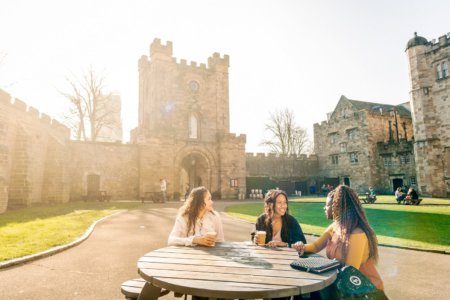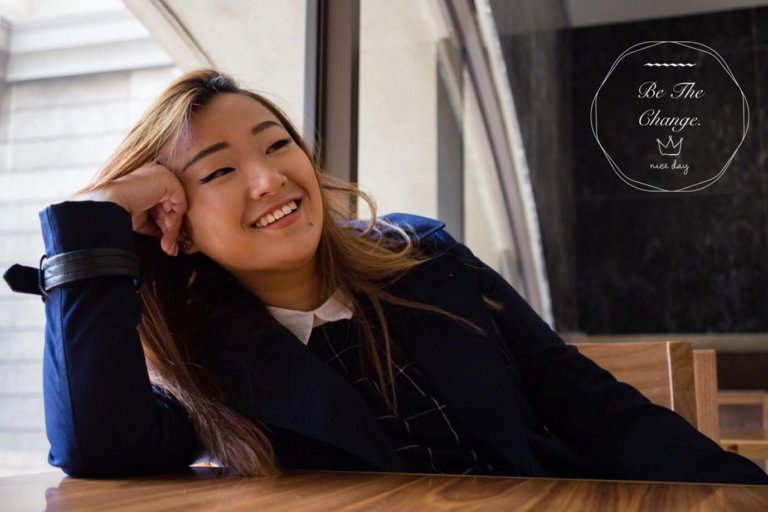
Shirley Chan, an LLB student at Durham University, was inspired by the idealistic lawyers during her childhood in South Africa to join the field. That, and a desire to right the unsustainable business practices back home.
Yet, her time is spent far from just the library. From volunteering work to an internship in a bank, from becoming a Hult Prize accelerator participant to co-founding of PIK Sustainable Solutions and co-chairing TedxDurham.
Below we dive into this South African’s busy lifestyle, why she’s exploring programmes beyond law, and what her experience at Durham University has been thus far:
What made you choose to study law?
I did quite a lot of volunteer work in high school and during that time, I met my first inspiration. This was a young candidate attorney named Anny Lee — a senior at my local religious youth group. She gave me a lot of guidance and was adored by our community for her volunteering and leadership.
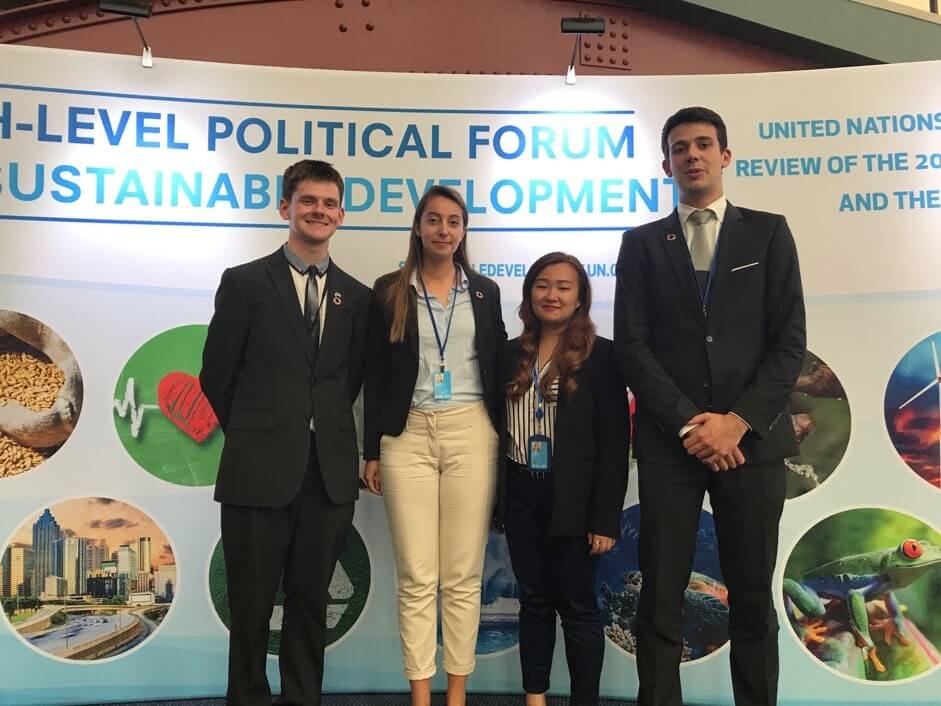
Representing ELSA UK in New York for the UN-High Level Political Forum on Sustainable Development. Source: Shirley Chan
The second prominent inspiration was Mr. Michael Sun, the first South African Chinese MMC who was also the advising attorney to my parents’ company. He still continues to do many great things for our community and through these experiences. I really admire the respect a lawyer received.
They are able to truly impact people’s lives through the legal system. There are generally not many lawyers within the South African Chinese community which also made this profession unique for me and something worthwhile pursuing. I also knew the skills and knowledge from a law degree would help in my career pursuit in building a sustainable and impactful business.
Why did you choose to pursue this course at Durham University and in the UK?
My first visit to the UK was a high school Europe trip where I fell in love with the country. The UK has always been well known for its prestigious unis and Durham University is on the top of that list which made it indispensable for me.
Additionally, the UK also has the shortest time period to study for a law degree compared to the conventional six years in the US or South Africa. This was a huge advantage for me. I also chose my uni because upon my research, I instantly loved the appearance of the campus and college system.
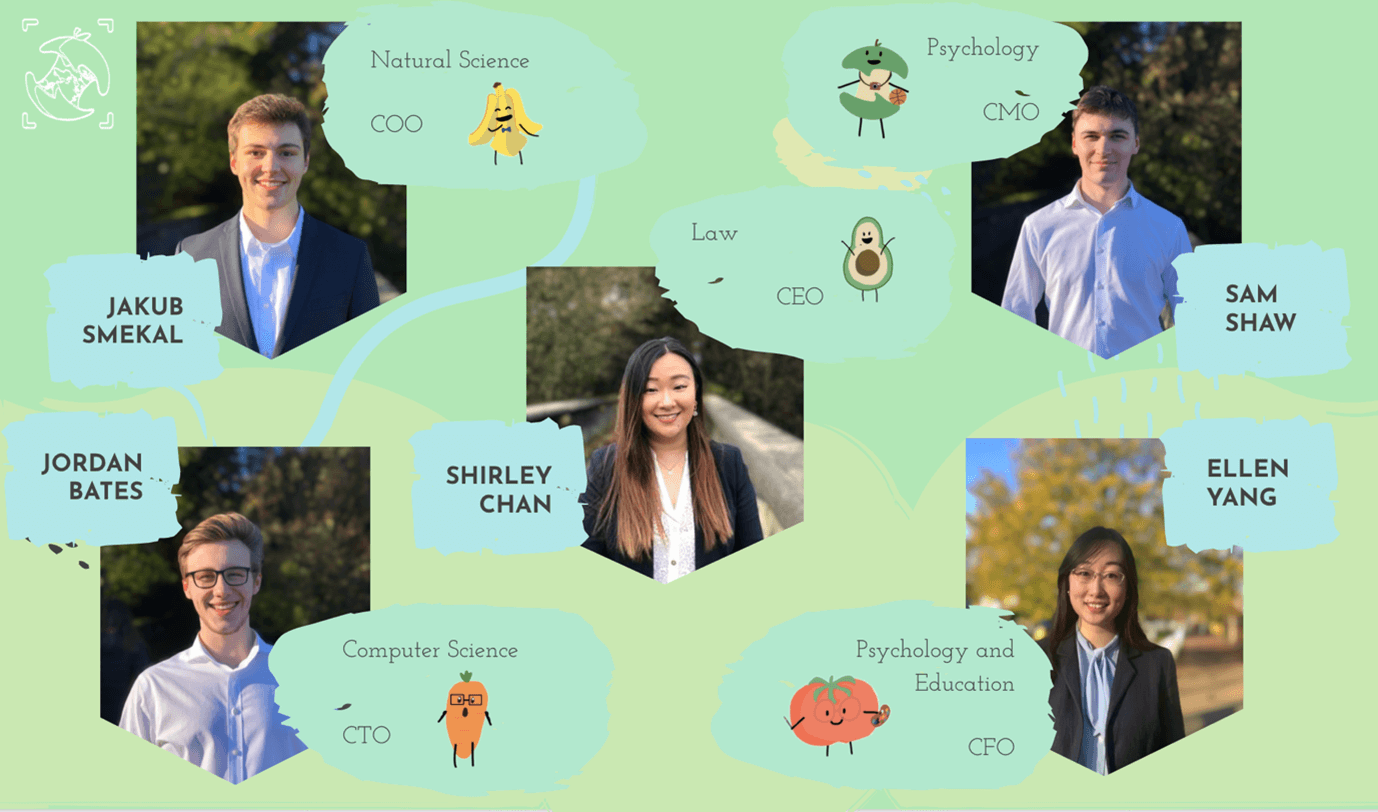
The PIK Team from Durham University. Source: Shirley Chan
Looking back at it now, it was the best decision I ever made because I met so many incredible people including lifelong friends and the love of my life. A fun fact is that Durham University has been reported to have 72% of its students to marry another one — one of the highest inter-student marriage unis in Britain.
Tell us more about PIK, is there a personal backstory for your interest in sustainability?
This is actually a very funny and interesting story. To be honest, I didn’t actually come up with this business idea, I spotted my amazing co-founders and poached them at Durham’s annual Game Changer programme in 2020. I was honoured to be invited to be a judge at this inspirational event and immediately saw the potential in PIK (formally known as waste-less at the time).
We all instantly connected online and it has been a great experience working with the co-founding team. Building this business online through Zoom meetings has proven that business and relationships actually have no bounds if people are determined to create something impactful.

Durham Law Society Ball before the pandemic hit. Source: Shirley Chan
I have always been an advocate for sustainability and corporate social responsibility. Growing up in South Africa, I was quickly exposed to the many unsustainable business practices which made me notice that regulations do not provide enough guidance for improvement.
This became the primary reason for me to educate myself more in this area of law and policy and formed the foundation for my career and business pursuit. Because I want to contribute and bring sustainable impact to the corporate world that is like the bread and butter of society — affecting everyone’s lives.
Do you think it would have made a difference if you studied at a local institution?
I predict that I would have not been given the immense learning opportunities in comparison to Durham University. My living arrangement and independence development would have been different as well.
The UK also offers a broader range of career prospects and a wealth of opportunities. Hence, I do believe studying abroad for me was the most attractive option despite the heavy expenses that come with it. I have been very privileged to be able to learn more about ESG developments and policies while studying here. The UK has a very diverse environment that inspires an international outlook which I think is a necessary mindset to cultivate within such a globalised world.

“This was an amazing conference, and the theme was ‘Make Your Mark 2020’. Just before the pandemic sent us all home,” Chan says. Source: Shirley Chan
What has been your most memorable class so far?
My most favourite class would be Land Law in the second year taught by Ms. Lana Ashby, a truly remarkable educator. She puts an immense amount of effort and attention to make the module content enjoyable and widespread.
I think what makes her work so special is her unique integration of different tools and resources in her teaching. She employs mini Youtube videos, Kahoot questionnaires and created a comprehensive handbook. It’s safe to say thanks to her efforts, I was able to achieve a first class for her module and I also enjoyed the seminars and talks in law school.
Do you have any fond memories with teachers that stood out for you?
I would like to give thanks to our Dean Professor Thorn Brooks, a delight and a wonderful man who is well-known for his enthusiastic and warming personality. He’s always engaging with the students and staff and literally replies emails within the minute.
I would like to mention Dr. Chris Riley, my dissertation supervisor who is the most patient and empathetic lecturer. I really enjoyed learning his company law module which has been extremely helpful during the pandemic.
Dr. Yige Zu is also very friendly and very hands-on with her teaching, she brings the module to life by integrating practical scenarios and questions to stimulate your thinking point. Mr. Andreas Georgiou, my first year tutor who really helped me through a challenging period, also stands out for me.
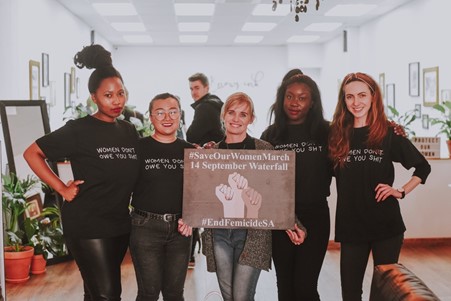
A protest Chan organised in the summer of 2019 against femicide. Source: Shirley Chan
Lastly, I would like to give a special appreciation to Dr. Akseli Orkun, my corporate finance lecturer who is a very comprehensive and inspirational teacher despite his cancer condition at the time. Most of these classes were delivered online due to the pandemic, but it did not diminish the quality and involvement which made me imagine the environment physically would be even better.
Do you get to apply the theories you gained in lecture halls and classrooms to the real world?
I think this is a very interesting question. I had a chance to actually explore deeper thanks to my law in practice module where the objective was to do a legal internship and compare the legal theory and legal practice.
In my findings, I discovered that there is indeed a very high correlation and advantage for legal study and practice. Generally, the academic knowledge and skills one acquires through studying law is transferable into practice. Studying this course taught me how to digest and analyse lengthy and complex relationships between law and people. It also taught me how to identify issues and balance arguments and prepared my foundation to solve real life problems.
What do you miss from home?
I miss local produce from home. I also miss the good weather and that can never be substituted. I also miss my pets as I grew up with animals my whole life, but in the UK, there is an amazing platform called “Borrow My Doggy” that connects you with local dog owners who are happy to share their pets with you. This is a great stress reliever and I find there are many pet lovers on the platform in Durham.
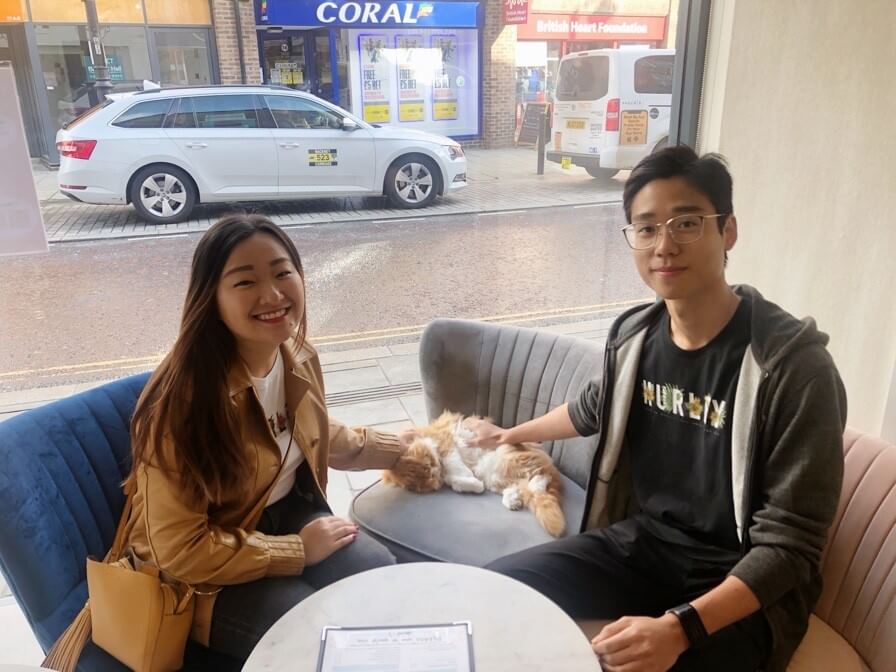
With special social distancing and bookings systems, Chan is still able to enjoy a morning at the new Pawsome Cat Café in Durham. Source: Shirley Chan
Do you plan to progress into further study?
I aim to get qualified as a solicitor and broaden my corporate legal experience so that I have a solid foundation to ensure the prosperity of my startup business — legal fees can be quite hefty. I also cannot wait to work in Durham University’s new Hazan Venture Lab specifically designed to provide a modern location for student startups and aspiring entrepreneurs to work and network with like-minded game changers.
I also aspire to be at the New York UBE as it has been on my bucket list for a long time and because one of my co-founder aspires to build an office in Silicon Valley. I suppose it would be good for me to be dual-qualified. One day, I might pursue an MBA or master’s degree in policy development and sustainability. But for today, I will focus on getting qualified and build up PIK with the team.
What advice do you have for international students looking to study in the UK?
I must have a whole checklist for this one but my most important takeaways are: apply early and check your eligibility, get your IELTS test done as soon as possible, and definitely research carefully about course content.
Also make sure to read about the uni environment and culture for your future plans and personal reference. Depending on where you’re from, I would strongly recommend investing in a strong umbrella paired with a coat and rain shoes.
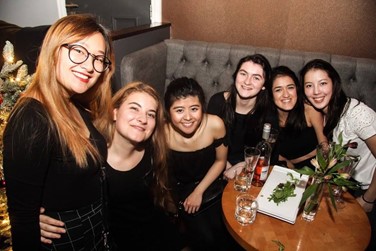
Enjoying a social with friends and coursemates at the Durham Whiskey River Bar hosted by the Durham University Mooting Society. Source: Shirley Chan
What advice do you have for students to budget wisely?
Firstly, I am terrible at budgeting and this is something I continuously learn from to improve. Budgeting will really depend on the location of your chosen uni, some city-based unis will generally have a higher living and accommodation cost compared to countryside ones.
Hence, it’s always wise to do your research beforehand. You can also skim over grocery stores and restaurants online in the uni area to consider an estimate for your budget plans. I would also try to budget entertainment costs since that is an essential part of your uni student life. A good thing about the UK is that there are a lot of student discount codes available.








